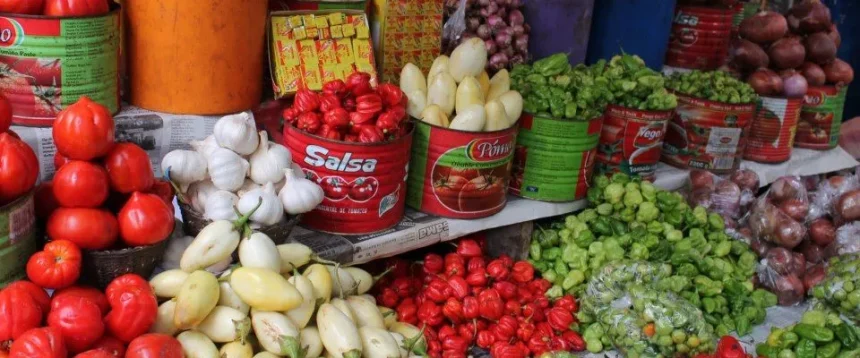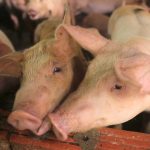The challenges faced by Nigeria’s food security are seemingly intensifying, as farmers in the country report a decline in the production of essential food items. This deterioration is attributed to multiple factors, such as climate change-induced flooding, inflation, insecurity, and fluctuations in the value of the Naira. The United States Department of Agriculture has projected a slight reduction in the production of rice, millet, cassava, maize, and soybeans in Nigeria by the year 2024. Despite Nigeria being the world’s leading producer of crops like cassava and maize, gathering data for policy-making and investment decisions has not been a priority for the Ministry of Agriculture over the years. Officials from the ministry suggested that LEADERSHIP Weekend should rely on external sources for information regarding crop production levels. Despite an increase in the number of farmers, there is an anticipated fluctuating trend in the production of vital crops in Nigeria, with a possible decline in the 2023/2024 marketing year. In the year 2022, the food production index experienced a modest increase, reaching 119.9 index points, which was primarily due to the resilience displayed by Nigerian farmers in overcoming challenges such as floods and insecurity.
Recent data from various sources, such as the United States Department of Agriculture (USDA) and Statista, predict a slight decrease in rice production in Nigeria. The 2022/23 marketing year saw 5.355 million metric tonnes of rice produced, which is expected to drop to around 5.229 million metric tonnes by the 2023/24 marketing year. Similarly, maize production was 12.75 million metric tonnes in 2021 and is projected to decrease by 8% to 11 million metric tons during the 2024/25 marketing year. Guinea Corn (Sorghum) production is anticipated to decline from 6.742 million metric tonnes in the 2022/23 period to approximately 6,700 million metric tonnes in the 2023/24 marketing year.
The Food and Agriculture Organisation (FAO) of the United Nations has reported that over 31.5 million people in Nigeria may face acute food insecurity between June and August 2024, marking a significant increase of about 4.6 million people from the earlier projection of 26.5 million in November 2023. Multiple security challenges, including conflicts in the North-east, North Central, and North-west regions, fuel scarcity, currency devaluation, rising inflation, and consumer price index have contributed to this alarming food insecurity situation.
As the planting season begins, Nigerian farmers may experience a decline in crop production due to these persistent challenges. The National President of the All Farmers Association of Nigeria (AFAN), Arc Kabir Ibrahim, has voiced concerns about these challenges and the state of the agricultural sector. He attributes the decrease in productivity to factors such as insecurity, low levels of mechanization, high input costs, flooding, and increased labor expenses.
In response to these adversities, AFAN is taking a proactive approach by treating agriculture as a business and engaging in advocacy with the government. The association urges President Bola Tinubu to implement sustainable subsidies for all agricultural inputs and to strengthen security measures, ensuring farmers can safely access their lands and improve productivity in the agricultural sector. By addressing these challenges and fostering a supportive environment for farmers, Nigeria can work towards overcoming food insecurity and enhancing its agricultural output.





